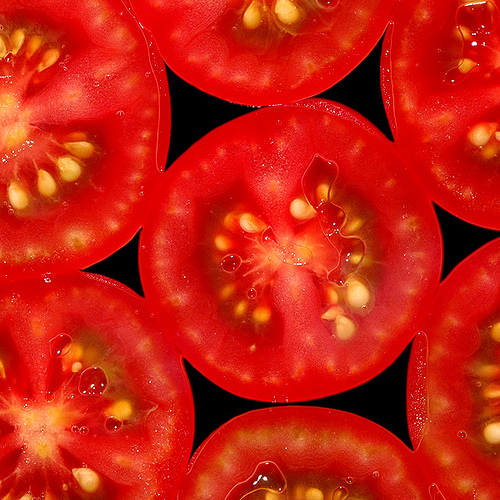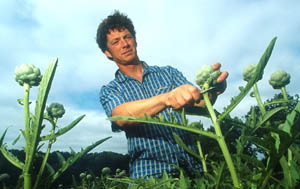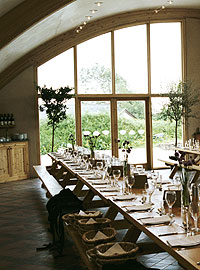The Brand Catwalk – Riverford Organic Vegetables

Image courtesy of RuneT
From 1974 to 1982 I lived in a part of the UK called South Devon, in a village called Dartington.
My father farmed the next door estate to a place called Riverford Farm.
In the late ’70s and early ’80s Riverford started thinking in earnest about agricultural diversification. This still contentious subject is essentially about expanding or replacing the revenue streams of a farm so it doesn’t get so screwed by the supermarkets.
I remember them beginning this journey, when they started one of the first farm trails that actually invited the public onto farmland and into farms rather than shooting them on sight.
Then in 1986 Riverford began to convert to organic production, a process that takes about three years or so. The original intention was to supply organic produce to the supermarkets but after a rather unedifying altercation with the now defunct Safeway, they decided to take their produce direct to the consumer, and launched a organic vegetable box delivery service.

Guy Watson, Riverford supremo, severing artichoke heads
Today they deliver 30,000 vegetable boxes a week to homes throughout the South of England and, with sister farms in Peterborough and the North East, right up the East Coast of the country as well. That’s a hell of alot of purple sprouting broccoli.
They are not the largest vegetable box scheme in the UK, that accolade still belongs to Able & Cole, but I love the way that it is the farm that is delivering the vegetables that they (and their neighbours) grow, rather than an intemediary. This is the source of the brand’s authenticity.
However the reason for singling Riverford out is the idea behind the brand, that is what makes me interested both personally and professionally.
Clearly the environmental and health benefits of organic produce are incredibly important to Riverford’s approach, but they are not the principle reason to buy.
At the heart of the Riverford philosophy is a belief that the only thing that realy matters is ‘performance in the kitchen’. This brand is, first and foremost, about taste.
Vegetable varieties (85 in total) are chosen for flavour and not yeild maximisation or their resistance to damage during industrial washing. And they are offered only at the time of year when they taste at their best.

The Field Kitchen that helps to underpin Riverford’s foodie credentials
Now I’m sure that they might protest at my obsession with the taste proposition and Guy Watson (Riverford’s main man) has responded in very robust terms to the Government’s assertions that there are no health beneifts to organic food – that it is a lifestyle choice. But for me it is the taste arguement that gives the brand its real strength – it is a long term platform for preference and elevates Riverford above the organic scrum.
I’m a complete convert, and while I can’t get my hands on Method for love nor money (the subject of the last brand catwalk), every week we now take delivery of the most amazing tasting fruit and vegetables, fresh from the rolling hills of South Devon.
Additional images courtesy of Riverford
Discover more from
Subscribe to get the latest posts sent to your email.

Interesting. How can we get this healthy food to kids who really need it? Is it affordable? Could the business model go nationwide in the UK? Is a brand needed? Lots of direct questions when you consider that the following nutrition problems still exist in the UK in the Third Millennium.
http://news.bbc.co.uk/2/hi/business/4652801.stm
it’s about time supermarkets and own brand mfrs were made accountable for the poor diets we have in this country.
Tesco, and Asda can all do more to protect the welfare of its customers and endorse healthy living without the higher than average transactional costs. Instead of giving computers to schools..why don’t they give fresh, local fruit…..
The comparative comms spend on categories within retailers is frightening. Needless to say fruit and veg is still not a marketing priority for most.
Unfortunately those pesky retailers have actually created a ‘brand’ out of healthy living. And only those with high disposable income can enjoy the benefits of organic produce or any for that matter any fruit/veg.
I get a Riverford box each week. It makes me feel happy knowing where my veggies have come from. I will feel even happier now in the knowledge my leeks ancestors lived next door to Richard Huntington!
I’ve been a bit concerned with the organic debate for a little while too. I get the feeling that the case for organic has been undermining the healthy eating war a little. Making people that are striving to eat their five-a-day feel like they’re not doing it quite right because they’re not doing it organically. I’m sure residue pesticides aren’t the best thing we could be eating but better that than avoiding fruit and veg altogether I say. But the taste – boy oh boy is there a difference and for a tomato where you can almost taste the sunshine that has made it grow – I would pay extra every time. Sainsbury’s have a ready made strap line in the archive ‘Taste the Difference’.
Now, here’s a question to ponder. I bought a single potato in Sainsbury today (to ping in the office micro). The potato cost 34p. In the same store a packet of ready salted Hula Hoops cost 30p. These used to be potatoes but have been boiled, mashed, shaped into hoops, fried, salted and put into a shiny foily packet. Add to that a liberal dash of branding and marketing and you get the question:
How does a raw unadulterated potato cost more that a bag of crisps?
As for method -I got some stuff off this site. The great thing is postage is included in the price and if you order over £25 worth of stuff you get £2 back
http://www.beautynaturals.com/brandlist.asp?id=hg-md
There’s less potato in Hula Hoops!
Richard – The butternut squash soup tasted fantastic, chez Huntington on Sunday night. I greatly respected Guy’s father, John, as a truely innovative farmer, breaking the mold in the 1980’s – it brought back good memories of the Dartington days, great to chat about the Watson family journey and philosophy – and great that Adliterate have given them a spot. Developing organic milk production on the Dartington Frams in the 1980’s was far from easy and something which a conventionally educated agribusiness man struggled with – at least we gave it a go and started to iron out the probelms, but then, Dartington always was good it tackling issues early in the cycle, even if they were not always so good at sustaining them. I am reminded that the ‘lead in’ time on realy significant moves in our combined behavior and activity can take several decades, I celebrate those who stick at it when the negative comments fly around, not least from government.
We have supported and enjoyed the Ripple Farm box scheme here in Wye over the last six or so years -the question of taste is significant, I paricularly compare carrots grown organically with those grown conventinally – ‘no contest’ give me organic every time. In terms of food miles it does not get much better than ones veg being grown a mile away, except of course growning it yourself. I will not get started on those lost veg. gardening skills which your grandparents took as a given.
i can recommend curry for the sweet mama squash in the boxes this week. i had it last night and it’s a winner.
One in 8 pounds are spent in Tesco according to The Today program podcast I managed to catch up with just recently. That’s a lot of responsibility.
Any road (as they say in The Archers) Guy Watson looks like he’s bleeding poppy heads in that pic…. very misleading! ;)
Personally I’m an Able & Cole fanatic, driven to distraction with rage by the fact that the supermarkets are now launching their own organic box schemes (clearly having recognised that the likes of Riverford and Able & Cole have driven down their share of fruit & veg among the Guardian-reading middle classes by what’s probably something in the region of 0.0002%) – thereby adding further food miles to their already criminal tally, without any of the benefits of the brilliant box schemes – taste, provenance, etc.
And don’t get me going on the role of the retailers in the child-obesity debate – blaming the advertising industry seems particularly futile when the average low-income mum can save a fortune on every shop by buying processed crap rather than anything with any nutritional value.
Keith Able’s book is also very good for knowing what to do with your seasonal veg, by the way, wherever you get them from.
What child obesity? I thought size zero was the problem! Anyway this made me come back in case anyone is looking.
http://www.biffonline.co.uk/meal.html